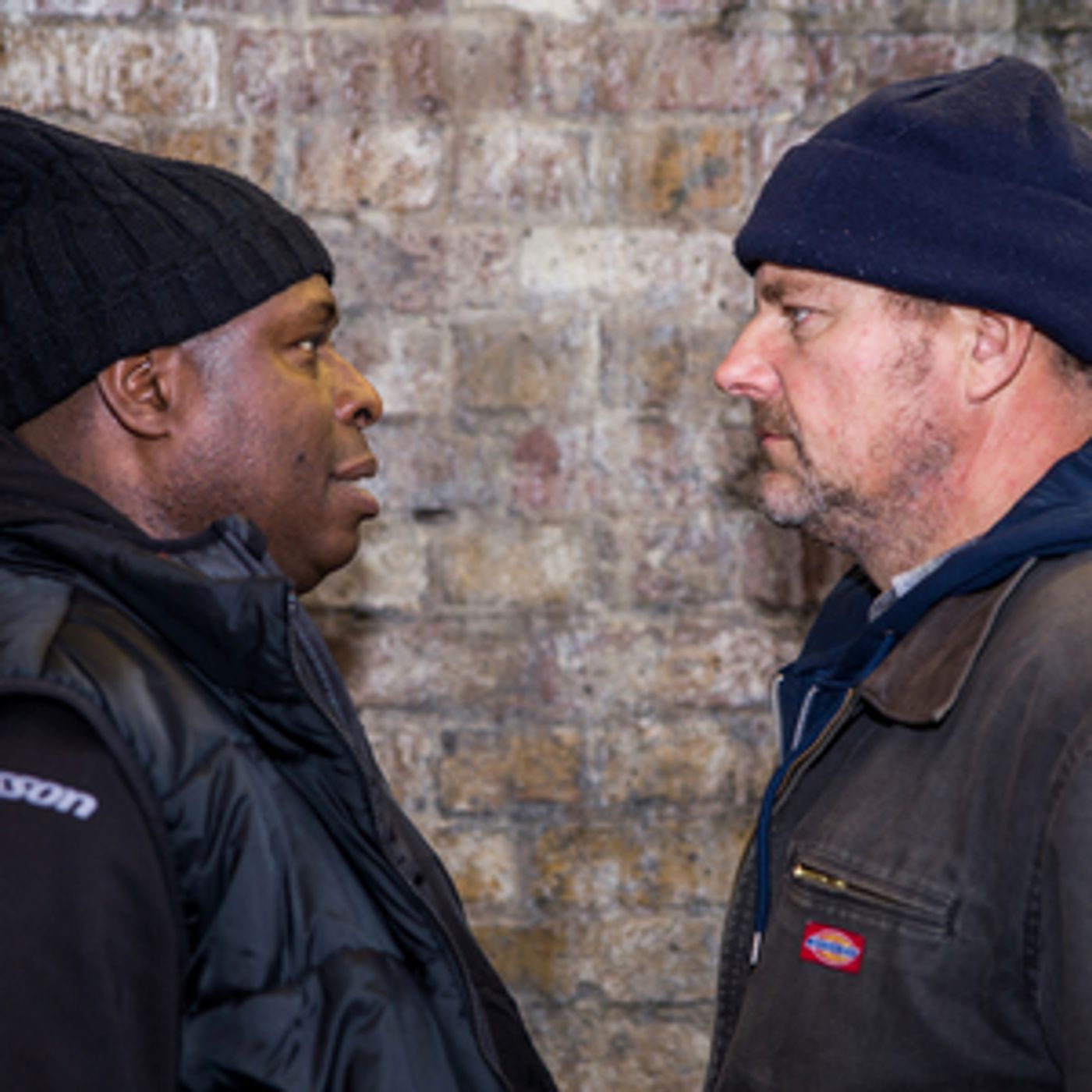Guest Blog: Cliffordkuju Henry On IN SEARCH OF A WHITE IDENTITY
The writer-performer discusses staging the piece in the current political and pandemic climate

in In Search of a White Identity
In Search of a White Identity explores the white identity in terms of difference. We do that by presenting two childhood friends, Mickey and Patrick, who are close as kids, but who haven't seen each other for years. By a series of coincidences, the two men meet. They are arrested and put in the same holding cell, where they are forced to explore each other's feelings.
As part of the process, my fellow actor Drew Edwards (who plays Mickey) and I improvised and explored our relationship with each other. Drew as a white male had to explore what that identity means for him today, and what that meant in the past.
During the re-envisioning of the play this autumn, I knew we needed to explore the death of a black male, and how traumatising recent events have been. The killing of George Floyd definitely traumatised me, and I got the sense that Drew was also traumatised. What fuels that type of behaviour?
A key question was about how that would look within the context of the play. The tearing down of statues, whether right or wrong, also needed to be processed, including the symbolism behind them.
The two characters have been brought up in a culture that doesn't really talk about the hard facts of race. Mickey goes through a process where memories are awakened for him as the result of the death of somebody, and so that process is a kind of revelation for him.
A burning issue of today is that we as people don't know the level of trauma we've often experienced, and about how that trauma gets projected onto each other. And I think that is a worldwide problem.
Jamaicans who came to the UK in the '50s and '60s didn't know about the experiences of those growing up in England, Ireland or Scotland, and vice versa. Those kids who were born of that time were brought up in a system that did not educate them truthfully about each other's experiences, and that helped to create a lot of conflict and difficulty in relating to one another.
(1).jpg?format=auto&width=1400)
and Victoria Evaristo in rehearsals for
In Search of a White Identity
Mickey and Patrick grew up on the same estate, but Patrick has no idea of the level of violence that Mickey experienced, and Mickey has no idea of what was going on for Patrick behind closed doors. That happens quite a lot, in my experience.
There is a lot of shame-based stuff that we keep within our own homes, and vulnerability is viewed to be a weakness. If Patrick and Mickey had bumped into each other in a café or a park, they would never have had the conversation they end up having in the play. It's only because they are locked up together in a cell that they start talking.
The play is also about class and gentrification - a polite way of describing a colonial power that comes into working-class areas and excludes people who are raised poor or working class.
The process of gentrification we've seen over the last twenty years or so has seen some working-class people assimilating and getting out of the environments where they grew up, for example through employment. Although they have some shared experiences with those who are left on the estate, they no longer have a relationship because of that division.
Patrick has what could be seen as a middle-class job, but he hasn't forgotten his background and works with young people who have experienced similar things to him, such as neglect or violence.
Mickey on the other hand has a house and a garden, and it's only when he is faced with economic insecurity that he ends up going on a march. Because migrants have often been relied upon to provide cheap labour, some people born in this country have felt rejected, and this has caused conflict.
The process of creating the play was about finding the vocabulary around being black, male and working-class, and about being white working class, and how the two interact with each other in a truthful way. It was about finding that truthful dialogue. The issues around race, class and masculinity, which our original version of play explored, now feel more urgent than ever in the light of recent events.
In Search of a White Identity available as part of the Actor's Centre's on-demand season from 27 November
Rehearsal photo credit: Joe Twigg

Videos

